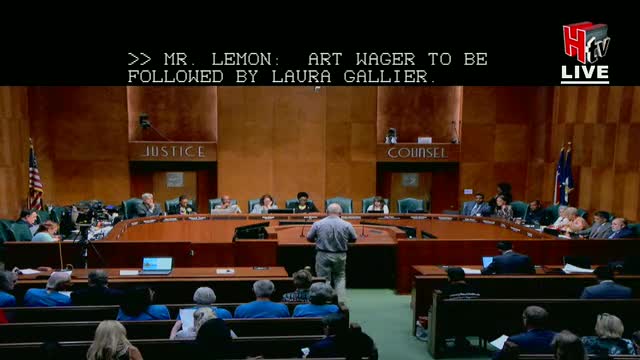Neighbors and officials spar over proposed 'super hub' at 419 Emancipation; concerns about cost, safety and site selection
Get AI-powered insights, summaries, and transcripts
Subscribe
Summary
Residents near 419 Emancipation urged the Houston City Council on Oct. 14 to either halt or more fully justify plans to convert the property into a navigation center or low‑barrier housing site, citing cost, proximity to other facilities and public‑safety concerns.
Residents and community leaders urged the council to reconsider or more carefully justify the city's interest in acquiring 419 Emancipation for a low‑barrier homeless navigation center and related services.
Speakers raised concerns about site selection, cost and community safety. Art Wager, a nearby resident, said the proposed site is “right behind my house,” and questioned the city's purchase price. Wager said the property cost cited in public materials—$16,000,000—contrasts with a January 2025 Harris County appraisal of $6,700,000 and asked where the larger figure originated. He also described the city’s fiscal constraints and warned that a “no‑barrier” intake policy (no background checks, sobriety requirements or time limits) could increase safety and disorder risks without strong on‑site controls.
Several speakers noted the concentration of other services and facilities in the same block‑radius — the county jail, the Beacon, sobering center, and other outreach providers — and some residents said those existing concentrations already strain local infrastructure. Scott Singleton and others raised concerns about the financial terms of the proposed purchase and the use of a “stalking horse” bidder to justify the city's offer.
Council members and staff described the project as a navigation center or “lifestyle residence” designed to connect people with medical, behavioral health, and housing services and said security and on‑site services would be prioritized. Council Member Carter noted the city is pursuing multiple locations and described the facility as one component of a broader homelessness strategy, emphasizing the goal of reducing street homelessness through low‑barrier housing and immediate service connections.
Opponents asked for more transparency about purchase terms, operations, and long‑term cost, and for additional community engagement about facility design, security plans and neighborhood impacts. No final acquisition vote occurred at the meeting; councilors agreed to continue community outreach and to hold additional public forums.
Why it matters: The proposed facility sits in a dense area of services and nearby residences. Community supporters of low‑barrier housing and navigation centers emphasize evidence that housing‑first, low‑barrier approaches reduce street homelessness; opponents worry about local safety, property values and concentrated service burdens.
Next steps: Council members said city staff would continue engagement and provide additional financial and operational details to affected neighborhoods before any final purchase or contract award.
